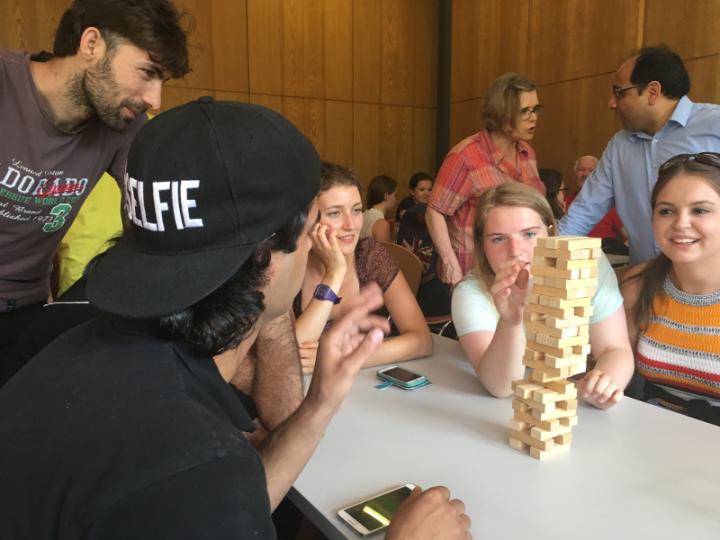Students run integration project for refugees arriving in Germany
History of Art graduate, Ellen Smith, who studied German at LLC as part of her degree, talks about spending a summer working with young refugees in Zotzenheim.
Ellen Smith, a History of Art graduate, travelled to Zotzenheim in the state of Rhineland-Palatinate as a third year student as part of a group from across the University of Edinburgh. Staying in an empty church house, the group's main work with school pupils was done in the nearby town of Bad Kreuznach.
In 2016, Ellen took a German language elective course at the School of Literatures, Languages and Cultures (LLC) as part of her studies. It was here that Annette Götzkes, a Senior Teaching Fellow, initiated the project with the students. “The broad aim of the project sought to break down cultural barriers through the sharing of language, and help in the process of refugees integrating into society,” said Ellen, “Personally, I wanted to gain first-hand experience of what life is like for people with refugee status, rather than relying on the images and stories we see in the media coverage.”

Throughout the summer, the group would have German lessons in the morning, introducing relevant topics and vocabulary around refugees and migration. In the afternoons they would go to Bad Kreuznach, where they would run activities for children as part of a summer school. The games and lessons would all be conducted in German, giving the refugee children a chance to improve their German skills, with the aim of helping them keep up when they return to school after the summer.
“I loved watching the children grow in confidence,” she said, “A 12-year-old girl in my group would translate between German and Arabic for her friend who had only arrived in Germany a month ago, despite having only been in Germany for nine months herself.”
They also participated in cultural exchange events, like interviewing locals, presenting on Scottish culture, and visiting the Bon Café, where refugees would talk about their experiences of travelling to Germany, and what life is like for them now.

“It was extremely challenging hearing the stories of the long, traumatic journeys people had made to reach Germany,” she said, “None of us really knew each other in the group beforehand but we all bonded so quickly and this support was crucial in staying strong so that we could work hard on our project.”
“I hope that the locals have received the positive message that young British people are willing to help and that there is hope after Brexit. There was initial anxiety about us staying in the village but I hope that through our community outreach work and cultural exchange, we made a good impression so that any negative attitudes towards foreigners have been changed, or at least challenged.”
For Ellen and the rest of the students, the next part of the project is about sharing their experience. They are planning an exhibition for next semester, which will include work from Edinburgh College of Art (ECA) students who have also engaged with issues around refugees. “We want to correct misconceptions, and also promote how critically important language is in the integration of refugees into their new communities.”

